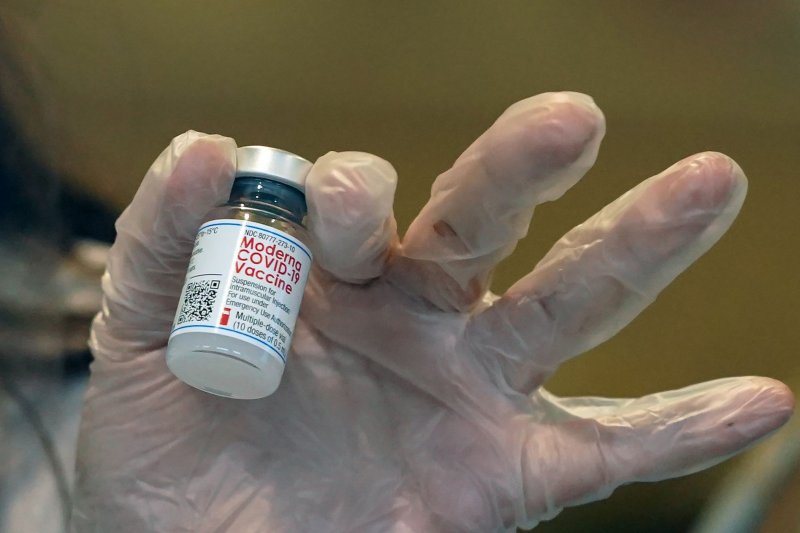
Sept. 14 (UPI) — Immunity from the Moderna COVID-19 vaccine lasts at least six months, and there is no indication that fully vaccinated people will need a booster shot, a small study published Tuesday by Science found.
The vaccine also appears to produce long-lasting protection against the coronavirus in people of all ages, including those 70 and older who are at higher risk for serious illness, the data showed.
“The immune memory was stable, and that was impressive,” co-author Shane Crotty said in a press release.
“That’s a good indicator of the durability” of both the Moderna and Pfizer-BioNTech vaccines, which are made using similar formulations, said Crotty, a professor of vaccine research at the La Jolla Institute.
The findings are based on an analysis of 35 people enrolled in early clinical trials of the vaccine, who received a low-dose version that is equivalent to one-quarter of the 100-microgram dose now given, the researchers said.
“We wanted to see if a quarter of the dose is able to induce any immune response,” study co-author Jose Mateus Triviño said in a press release.
“We had the opportunity to receive the samples from the original … Phase 1 trial participants who had received two 25-microgram injections of the vaccine, 28 days apart,” said Mateus Triviño, a postdoctoral fellow at the La Jolla Institute in California.
Clinical trials conducted with patients who received the full dose of the Moderna vaccine found that the shot offered 93% protection against severe illness for at least six months, according to data released by the company.
Although the Moderna vaccine, as well as those from Johnson & Johnson and Pfizer-BioNTech, lower the risk for serious illness, even with the more dangerous Delta variant, they may be less effective, and immunity could begin to weaken in as little as four months, studies show.
For this study, the La Jolla Institute researchers compared immunity in recovered COVID-19 patients with that of vaccine trial participants who received a 25-microgram dose of the Moderna vaccine during the Phase 1 clinical trials.
This dose is one-quarter of the 100-microgram Moderna dose given emergency authorization by the Food and Drug Administration in December of last year.
Most of the 35 patients included in the analysis continued to have high antibody responses six months after being fully vaccinated, according to the researchers.
Antibodies are cells produced by the immune system to fight off viruses.
That six-month timeframe is sufficient for the body to produce “immune memory” against COVID-19, meaning the protection offered by the vaccine could last much longer, the researchers said.
This suggests that booster shots, which have been a source of controversy given vaccine shortages in some parts of the world, may not be needed with the Moderna vaccine, particularly at the full dose, they said.
In addition, the researchers found that the Moderna vaccine spurs an adaptive immune response to the virus that is nearly identical to the natural response to infection.
It also appears to boost the immune response created by the common cold, which also is caused by a coronavirus, further strengthening protection, according to the researchers.
However, the study did not show that a lower dose of the Moderna vaccine provides the same protection as the standard dose, as to do so would require a clinical trial.
He and his colleagues plan to see whether the other COVID-19 vaccines produce the same, durable immune response, though “real-world” data suggests they do.
“The people in the hospitals are the ones not vaccinated,” said study co-author Daniela Weiskopf, an assistant professor of immunology at La Jolla.